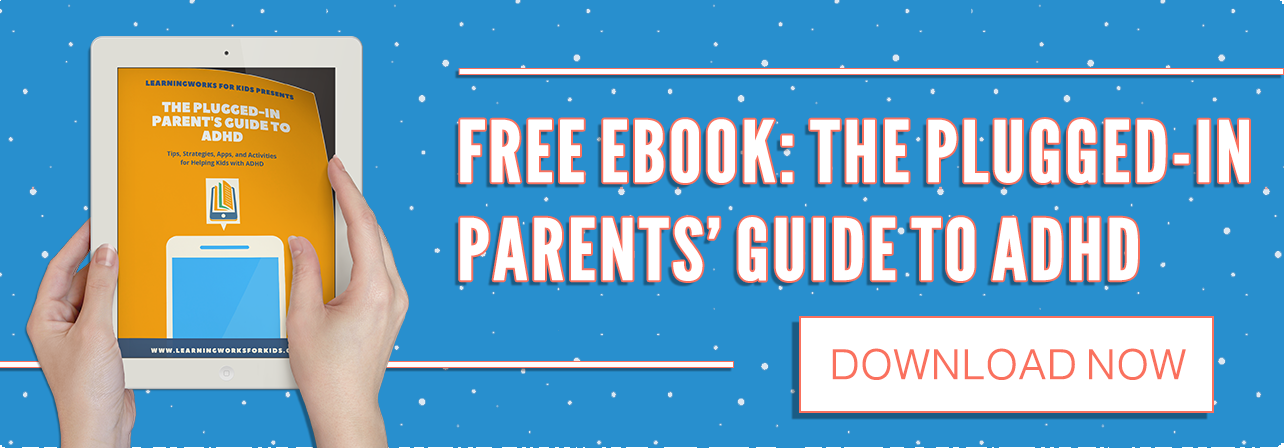Aidan is a very capable student; however, he seems to struggle to finish his school work and he is very forgetful. When he does finish his homework, he will often forget to bring it to school. Other times, he forgets to write down what his homework is and needs to call one of his friends to figure out what he needs to complete for class. At home, his parents have started to notice how disorganized he is and how he has difficulty remembering things. His parents wondered whether he had ADHD, but he does not appear to be hyperactive and has many activities in which he can pay full attention. They began to consider whether his difficulties might be more about executive functions and began to ask the question, “Is it ADHD or executive functioning?”
If your child always forgets to turn in his completed homework or has a backpack filled with a collection of old assignments and rotting lunches, he may be displaying signs of difficulty with his executive functions. Executive functions are brain-based cognitive skills that are crucial for goal setting and decision making. They also help with the management of feelings, behavior, and attention. While there are dozens of theories of executive functions, the most recent view is that executive functions include skills such as working memory, flexibility, organization, self-control, time management, and sustained attention.
Executive functions are not a new phenomenon, but rather have been identified by psychologists as crucial for self-control for the past 50 years. In today’s world they are defined as the cognitive processes that help children with self-management and are seen as the key to being successful in school and other activities. When psychologists talked about executive functions in the past they often viewed them as fixed capacities, so it was assumed that individuals could not improve their ability to pay attention, increase memory skills, or acquire organizational capacities. However with our new understanding of the neuroplasticity of the brain, scientists now recognize that executive functions are changeable, and that like the brain can be improved through targeted practice and training.
A number of prominent ADHD experts, including Russell Barkley, PhD and Thomas Brown, PhD, have identified ADHD as a “disorder of executive functioning.” Many people with ADHD experience difficulty with processes such as working memory, self-control, following multi-step directions, planning and foresight, organization, time management, and inflexible problem-solving skills. These are the skills that are typically described as “executive functions.” This is why it can be hard to differentiate between whether your child has ADHD or just difficulty with his executive functions.
When we begin to view ADHD as a disorder of executive functioning, it opens up opportunities for treating specific skills for people with ADHD. For example, training in working-memory skills (such as with Cogmed Working Memory training or Jungle Memory) can clearly lead to the development of a longer attention span, less distractibility, and improved organizational skills. Recent studies also indicate how vigorous exercise, yoga, and meditation, can be tools for improving executive functioning skills such as sustained attention, working memory, and self-control.
To learn more about how to improve your child’s executive functions and how they play a role in ADHD, check out the following resources:
Learn more about EFs at websites such as:
What are Executive Functions?: An article posted on the Learning Works for Kids Website about what executive functions are, and how issues with executive functions can affect school success.
Executive Functions: An article from us at South County Child and Family Consultants about what executive functions are, what the twelve different functions are, and what they help you with.
Learn about how a neuropsychological evaluation of your child can determine areas of executive-functioning difficulties:
Neuropsychological Evaluation FAQ: Everything you need to know about neuropsychological evaluations and how to prepare for one.
ADHD toolkit: “If you are new to ADHD, this toolkit will help you gain a basic understanding of the disorder, using quick facts, infographics, podcasts, videos, a short course, and links to more in-depth articles and resources.”
ADHD- Attention Deficit Hyperactivity Disorder /Executive Functioning Evaluations: An article on our South County Child and Family website about executive functioning evaluations and a phone number to call if you want to schedule an evaluation.
Read books about EFs such as:
By Dr. Thomas Brown
Amazon Review:“Tom Brown has lived and breathed—and researched and pondered—ADD for years, so it comes as no surprise that his new book is both reliable and innovative; tested and testing; authoritative and ground-breaking. This is a superb book. I recommend it highly!”—Edward Hallowell, M.D., author of Delivered from Distraction: Getting the Most Out of Life with ADD
By Peg Dawson and Richard Guare
Amazon Review: “Filled with real-world examples and solutions, this easy-to-read book is the first comprehensive guide to the management of children’s executive skills. It gets to the heart of the matter, offering both parents and teachers accessible and highly efficient means to cope with a gamut of obstacles faced by children of all ages and abilities.”–Kristina Mecelicaite, MEd, special education coordinator, North Central Charter Essential School, Fitchburg, MA
Train Your Brain for Success: A Teenager’s Guide to Executive Functions
By Randy Kulman
Amazon Review: “Fills an important gap in clinical practice by providing adolescents with practical, user-friendly strategies to improve their organizational, planning, memory, and time-management skills. . . . Dr. Kulman has done an excellent job of interweaving his wealth of clinical experience with empirically-based research in describing strategies that teenagers can use independently or in collaboration with their parents.” —George J. DuPaul, PhD, professor of school psychology and chair, department of education and human services, Lehigh University







